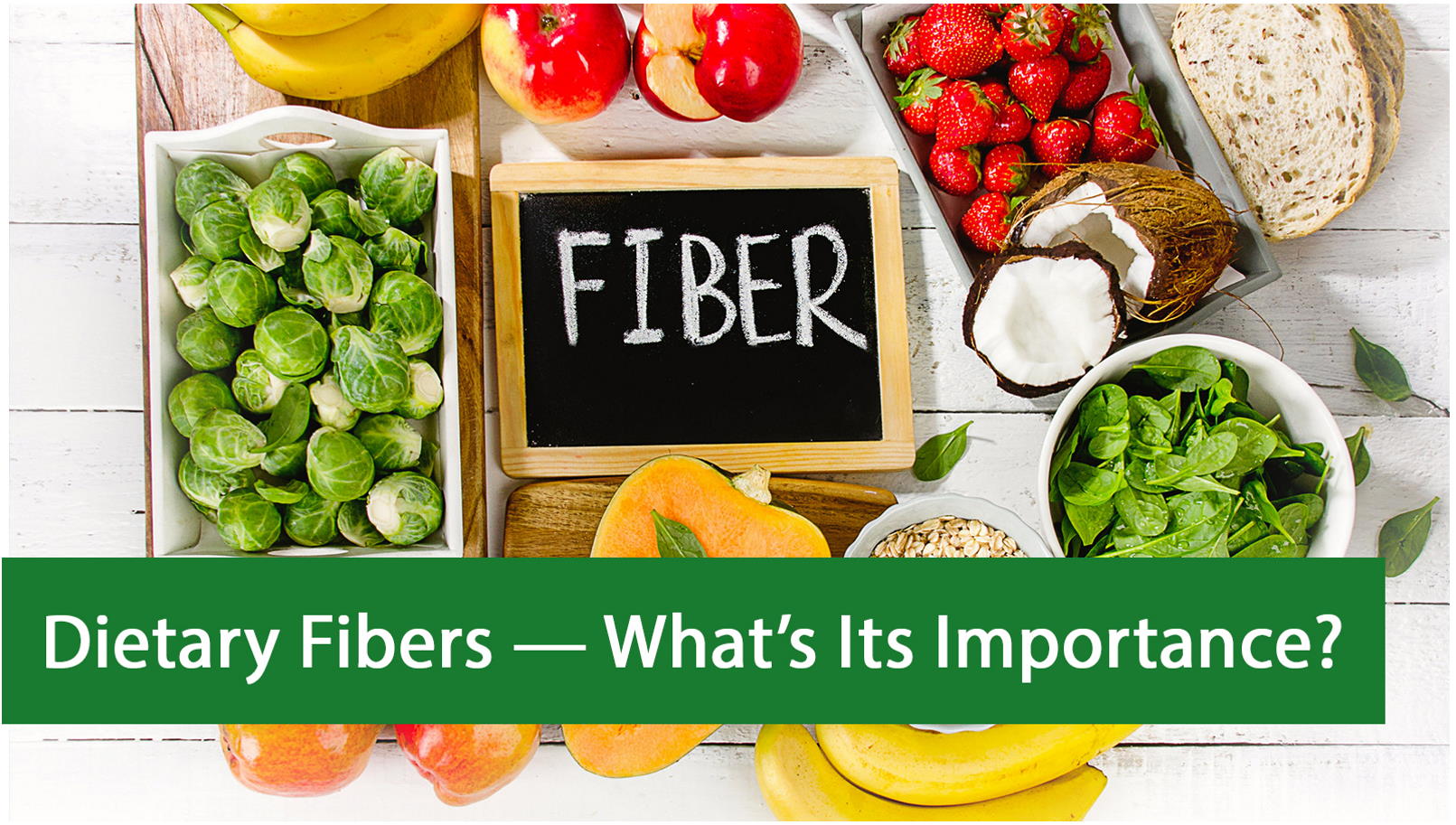24 November 2021

A balanced diet is the key to maintaining health, whether physically or psychologically, as well as keeping normal body functions. Therefore, we should have a wide variety of food choices in our daily meals in order to have sufficient nutrients from different foods.
While having our meals, we should consume 7 core nutrients needed by the human body, including carbohydrates, proteins, fats, vitamins, minerals, water and dietary fibers.
Some people would say, why are dietary fibers still included as one of the core nutrients even though they cannot be digested and absorbed by the human body? Not to mention that it can hardly provide any functional nutrients to our body.
Yes, it cannot be denied that humans cannot obtain nutrients from dietary fibers but it does offer lots of benefits to the human body nevertheless! Let’s see how:

What are the benefits of dietary fibers?
Soluble Dietary Fibers:
Soluble dietary fibers can be dissolved in water. It will become swollen and thick once in contact with water and form a gel-like texture in the human intestines. Thus, soluble dietary fibers may help to regulate digestion and stay longer in the stomach to provide a sense of satiety, besides helping us to maintain good cardiovascular health.
Insoluble Dietary Fibers:
Insoluble dietary fibers do not dissolve in water and it is harder in texture, yet it is also good for our digestive health. Insoluble dietary fibers may help enlarge the stools, absorb the toxins in foods, soften the stools and improve gastrointestinal mobility, so that the stools can be discharged out of our body more easily.

What kind of high fiber foods are there?
Vegetables:
Vegetables are incredibly rich in fibers, they are also regarded as “high fibers foods” by most people. With much lower calories, eating more vegetables may be beneficial for regulating our weight.
Fruits:
Fruits are high in dietary fibers, vitamins and minerals needed by the human body. However, the sugar contents in fruits are also particularly high, it may even increase the calories intake if consumed excessively. Therefore, we are suggested to eat fruits moderately.
Beans:
Beans commonly contain an abundance of fibers as well as quality proteins, vitamins and minerals. With lower contents of fats, those who wanted manage their weights but needed protein may opt for beans as their first choice.

How to consume more dietary fibers in our daily meals?
● While making foods with flour (noodles, bread, biscuits), we may choose whole wheat flour to replace white flour.
● Replace sweets with fresh fruits or dried fruits as snacks.
● Choose fresh fruits and vegetables rather than vegetables and fruit juices.
● Add some oatmeal into milk, cocoa drink and yoghurts.
● Add beans as part of the ingredients while making soup.
Having more dietary fibers in our daily meals may help us gain better health!






